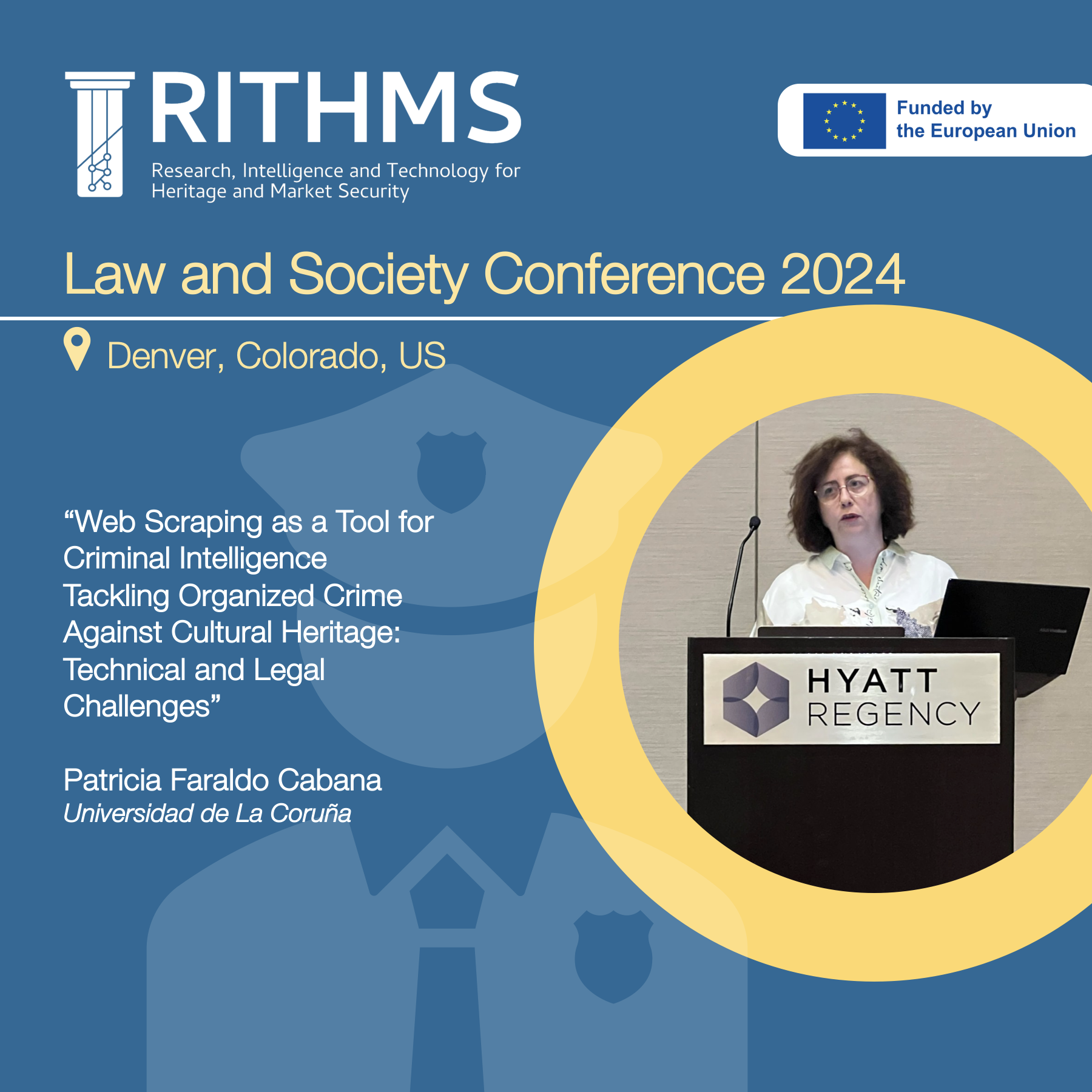
Last Saturday, RITHMS participated in the Law and Society Conference 2024 (LSA) in Denver, Colorado.
Dr. Patricia Faraldo Cabana, from the University of A Coruña (RITHMS Consortium Partner), presented her paper: “Web Scraping as a Tool for Criminal Intelligence Tackling Organized Crime Against Cultural Heritage: Technical and Legal Challenges”
Abstract
Law enforcement agencies in the EU are using various tools to automatically retrieve data from social media and other open sources available on the Internet, often referred to as web scraping, when conducting investigations against organized forms of crime, including trafficking of cultural goods. Extracting knowledge from big amounts of data through web scraping is used to understand links between individuals within complex, rapidly evolving interactive criminal networks. IA-based tools using social network analysis can not only identify individuals who were not previously on the radar of LEAs, strategically hot-spotting people of interest, but they are also capable of revealing significant insights into the dynamics of criminal acts. However, the legal requisites of using them to collect data are not well known. Failure to pay attention to this aspect may result in the violation of fundamental rights and the unacceptability of the collected evidence in court. The primary contribution of this paper is to clarify the EU legal framework to enhance LEAs' capacity to successfully tackle crime without jeopardizing citizens' rights. At the same time, this paper contributes to scholarly discussions about the legal limits of web scraping and the organized nature of heritage crime.